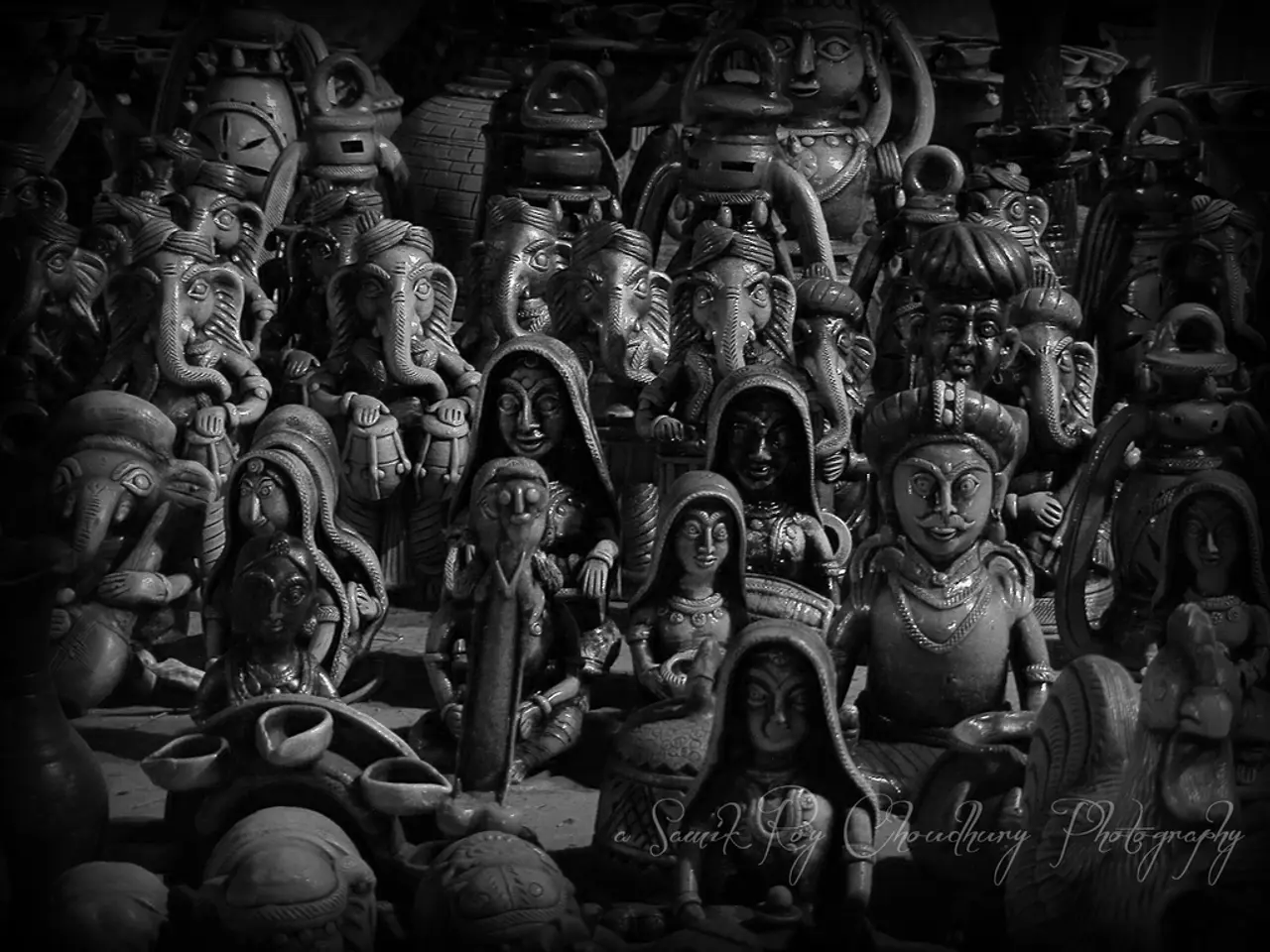Understanding the Four Jungian Archetypes and Their Significance in Personal and Spiritual Growth
In the realm of psychology, Carl Gustav Jung, a renowned psychiatrist and psychotherapist, proposed the existence of four major archetypes in every individual's personality. These archetypes - the Self, the Persona, the Shadow, and the Anima/Animus - play a significant role in our psyches and can guide us towards personal development and spiritual growth.
The Self, often represented by the wise man or woman archetype, is the central archetype that embodies the totality of the personality. It is the ultimate goal of individuation, the journey towards psychological wholeness.
On the other hand, the Persona is how we present ourselves to the world. It is a mask we wear to fit in with societal norms and expectations, often containing an element of 'people pleasing'. Identifying too closely with our Personas can inhibit our spiritual growth.
The Shadow, the darker side of the psyche, represents wildness, chaos, and the unknown. Society and our upbringing may have caused us to repress traits viewed as belonging to the opposite gender, and in order to become whole, we must integrate both the masculine and feminine into our psyche. Dreaming of a person of the opposite sex can be a sign that we need more balance in our psyche.
The Shadow archetype is relegated to the unconscious, containing personal qualities we deny, repress, or ignore. When we repress our desires or qualities, the Shadow may begin to show up in our dreams or in our attraction to shadow figures in films and literature.
The Anima or Animus is the feminine aspect of a man's unconscious or the male aspect of the female unconscious, respectively. Integrating these archetypes opens up the individual to greater self-understanding and more harmonious relationships with the world.
The process of integrating Jungian archetypes for spiritual growth and personal development primarily involves Jung's concept of individuation. This journey towards psychological wholeness involves becoming aware of and integrating unconscious archetypal aspects of the self.
Key steps include getting to know and integrating the Shadow, encountering and integrating the Anima/Animus, active imagination and inner dialogue, soul work and psychological healing practices, and integration and embodiment.
Paying attention to the types of stories and characters we are drawn to can shed light on the state of our psyche. Jung believed that by working through these archetypes, individuals can choose their actions rather than responding automatically from patterns in their personalities.
Keeping a notebook by the bed to write down any dreams can help in the process of integrating archetypes. Complementary practices such as meditation, mindfulness, shadow work, self-inquiry, and inner child work support the integration process by fostering self-awareness and emotional healing.
In conclusion, the integration of Jungian archetypes involves a cyclical process of encountering unconscious contents, consciously engaging with them through active imagination and introspection, healing psychological wounds, and embodying the new self-awareness into daily life, leading to spiritual maturation and personal development.
- The Self, the ultimate goal of individuation, embodies the totality of a person's personality and strives for psychological wholeness, guiding them towards personal development and spiritual growth.
- The Persona, the mask we wear to fit societal norms, may inhibit spiritual growth when one identifies too closely with it, rather than revealing the true self.
- The Shadow, the unconscious side of our psyche, contains repressed qualities we should integrate to achieve balance in our personality and prevent it from manifesting in dreams or attractions.
- The Anima or Animus, the feminine aspect of a man's unconscious or the male aspect of a woman's unconscious, can lead to greater self-understanding and harmonious relationships when integrated, thereby promoting personal growth and spiritual maturation.




